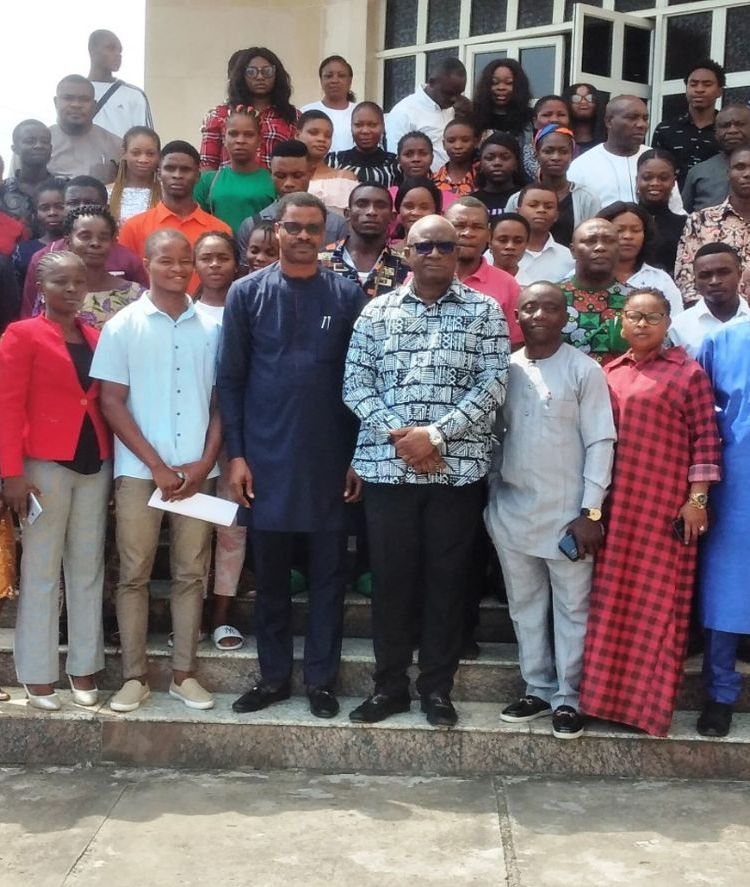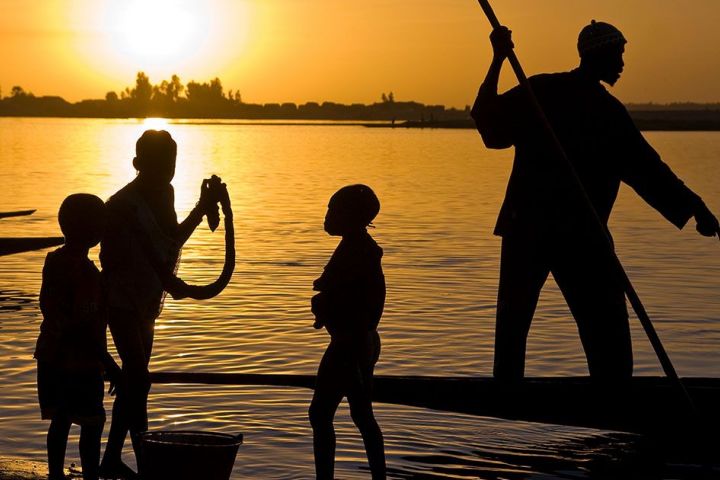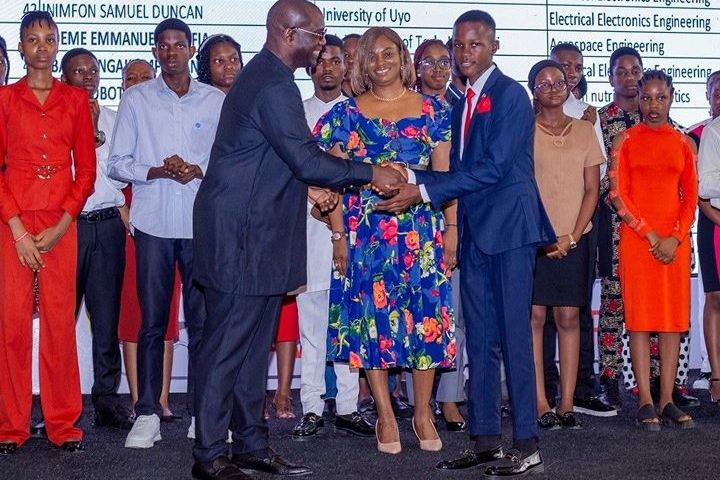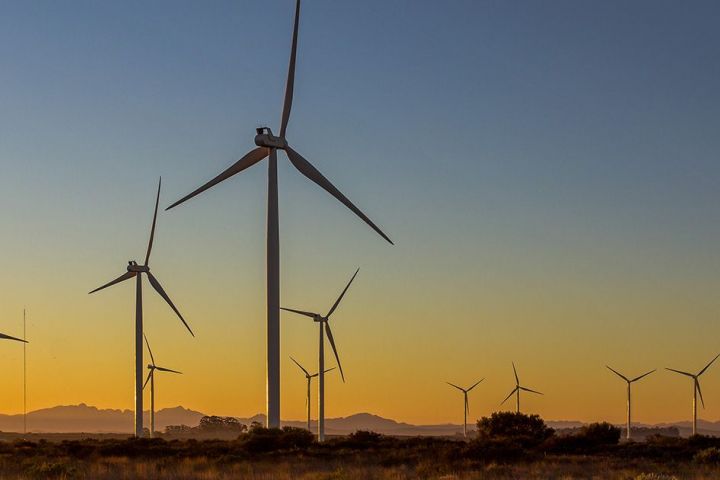The first pillar of our sustainability strategy is to promote socio-economic prosperity within the countries in which we operate
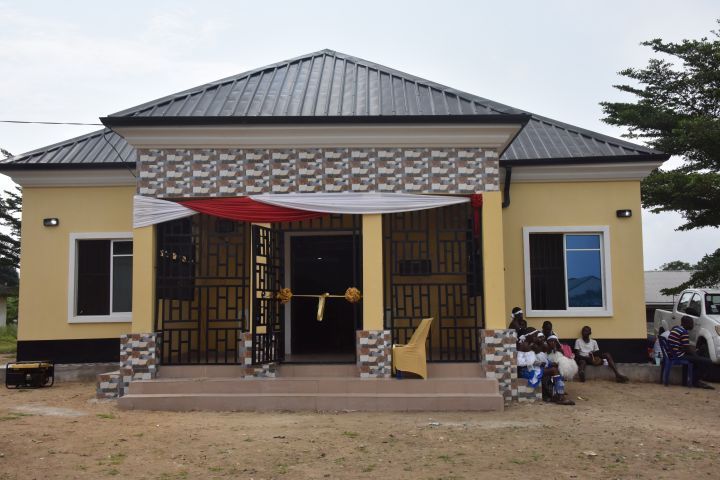
Our approach
Our ambition in the first pillar of our sustainability strategy is to make a positive difference to the socio-economic prosperity in our host countries and communities. Extreme poverty alleviation is one of the most important issue facing African countries today, with 37% of sub-Saharan Africans classified as suffering from extreme poverty.1
The World Bank also calculates that only 43% of Africans have access to electricity.2 Studies have shown the strong relationship between power consumption, income levels and broader human development metrics; ceteris paribus, the higher a country’s per capital power consumption, the higher GDP per capita, and the higher those human development metrics are expected to be.
Therefore, energy poverty alleviation would substantially contribute to solving Africa’s extreme poverty problems. That is why we focus on providing our host countries with energy to drive socio-economic prosperity.

Using energy to drive prosperity
Savannah supplies gas to enable approximately 17% of Nigeria’s available thermal power generation capacity, playing a strategic role in providing a reliable supply to power stations and industrial users. In 2024 we delivered gas to five customers in total.
In Niger, we are participating in a wider energy sector project which is forecast to contribute up to 10% of Niger’s GDP by 2026.3 We expect to tie our planned production from the R3 East Early Production Scheme directly into the new Niger-Benin export pipeline, which became fully operational in Q2 2024.
Our Parc Eolien de la Tarka wind farm project, anticipated to be Niger’s first wind farm, is expected to produce up to 800 GWh of electricity per year, meeting approximately 20% of Niger’s estimated annual electricity demand in 20294, as well as creating 500 local jobs in the construction phase alone and reducing the cost of electricity for Nigerien citizens.
In Cameroon, we are progressing our up to 95 MW Bini a Warak hybrid hydroelectric and solar project, expected to generate clean, stable and affordable power for Cameroon’s northern region, increasing its generation capacity by over 50%. This in turn is expected to support existing local electricity demand and enable energy-intensive industrial projects driving national economic development.
In September 2025, we announced our planned acquisition of minority interests in the operating Bujagali 255 MW run-of-river hydropower project in Uganda and two development projects: the 361 MW Mpatamanga hydropower development project in Malawi; and the 206 MW Ruzizi III hydropower development project, spanning Burundi, the DRC and Rwanda. The Bujagali power plant currently contributes up to 31% of Uganda’s effective energy capacity. Mpatamanga and Ruzizi III are advanced-stage developments which are expected to generate highly competitively priced electricity in their respective countries for the benefit over 30 million people.
At a local and regional level, Savannah creates significant socio-economic impact. Our impact includes payments to employees, contractors and suppliers as well as social impact investment in community projects. This contribution has a multiplier effect, creating economic impacts in the wider community and economy of our host communities. Our approach is to build on creating strong and meaningful relationships with our local communities based on mutual trust and benefit.
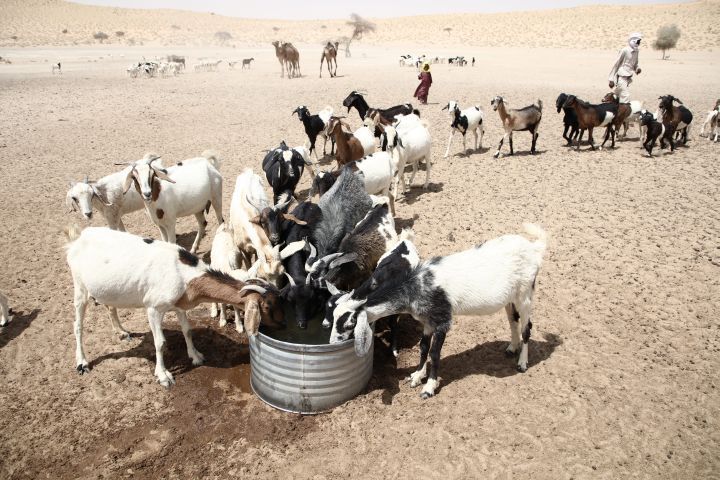
Making a local and regional difference
We advocate promoting local employment and development opportunities to drive local socio-economic prosperity. In 2024 we employed 181 people in Nigeria (2023: 175), of whom 99% were Nigerian nationals, and in Niger we employed 18 people (2023: 18), all of whom were Nigerien nationals. Through formal training and on-the-job development with experienced Savannah employees, we continue to build the capability of the local workforce in our host countries.
Savannah operates a global procurement policy across the Group as we have a significant supply chain impact. In 2024, we spent US$30.6 million (2023: US$23.5 million) with local contractors and suppliers. Our global procurement policy ensures all our contractors and suppliers meet the same standards and practices for all our operations, with some exceptions for specific local regulations. This approach affords opportunities for shared optimisation across regions but also enforces high standards because we recognise that the nature and context of our business expose us to the potential risk of fraud, bribery, modern slavery and human trafficking.
In our centralised vendor performance management system, we actively monitor the performance of all our suppliers and require re-qualification every three years.
Our annual reporting metrics
- Total Contributions(e) in US$.
- Social impact investment in US$.
- Payments to local suppliers and contractors in US$.
2024 performance
- Our Total Contributions(e) to our host countries were US$63.4 million.
- Our social impact investment was US$0.3 million.
- We spent US$30.7 million with local suppliers and contractors in Nigeria and Niger.
2025 objectives
- Savannah is committed to further strengthening our contribution to socio-economic prosperity in our host countries and communities.
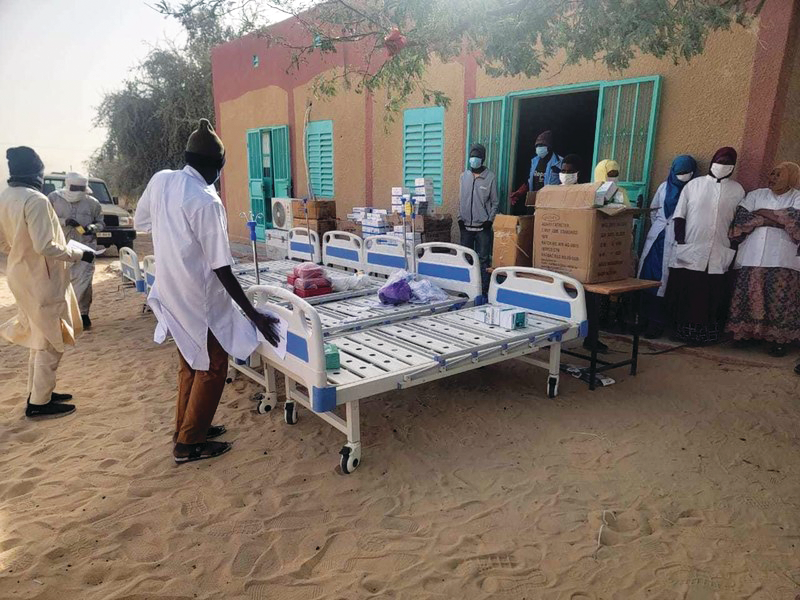
Donating pharmaceutical and medical equipment in Niger
In 2025, in alignment with our commitment to social impact projects within the countries in which we operate, we were pleased to donate essential pharmaceutical products and medical equipment to the N’Gourti District Hospital in Niger, helping to support the health and well-being of the 13 local communities in the south-east of the country near our licence area.
The donation ceremony took place at the hospital, where we had the privilege of presenting the pharmaceutical products and medical equipment in the presence of Captain Issoufou Koraou, Prefect of the N’Gourti District, Mr. Ousmane Sountal, the representative of the Mayor for the N’Gourti District, Dr. Abary Moussa Karim, Chief Physician at N’Gourti District Hospital, and other esteemed guests.
Dr. Abary Moussa Karim, Chief Physician of N’Gourti Hospital, stated: “As part of its social responsibilities, Savannah Energy is donating pharmaceutical products and medical equipment to the N’Gourti Health District Hospital. On behalf of the highest health authorities in our country, including Doctor-Colonel Major Garba Hakimi, the entire population of the N’Gourti District, and myself, we extend our gratitude to Savannah for this donation, which will undoubtedly enhance the medical care of patients in our health facilities. Savannah’s consistent support reassures us of its commitment to the well-being of the local people of the N’Gourti District. As a reminder, this gesture is in line with the objectives pursued by Niger’s PDSS (Health and Social Development Plan) 2022 to 2026, particularly with regard to Programme 2 relating to improving the availability and quality of health and social services.”
Social impact projects like this support Pillar 1 of our sustainability strategy, “Promoting socio-economic prosperity”, and align with nine of our chosen 13 UN SDGs.
Our Education and Training programme in Nigeria
Our flagship Savannah Energy Education and Internship Training programme, a collaboration between Accugas and the Inoyo Toro Foundation, a non profit educational foundation based in Akwa Ibom State, Nigeria, aimed at enhancing access to quality education in Akwa Ibom and Cross Rivers States, invested over US$55,000 in 2024. We co-organised the 2024 Annual Awards for Teaching Excellence in Akwa Ibom State Public Secondary Schools. The initiative recognised 17 outstanding teachers across core subjects with Teachers’ Awards. In addition, three principals received Principals’ Awards for fostering an enabling teaching and learning environment, while five educators were honoured with Grand Mentor Awards for their role in successfully mentoring fellow teachers to award-winning performance. Furthering our investment in education, Accugas awarded full university scholarships to the second annual cohort of 50 students from Akwa Ibom and Cross River States through the Savannah Energy Education and Internship Training Programme. The scholarships were formally presented during a ceremony held in Uyo, Akwa Ibom State, post-year end, in January 2025 and cover tuition, accommodation, study materials, and living expenses for the full duration of each recipient’s tertiary education, whether public or private.
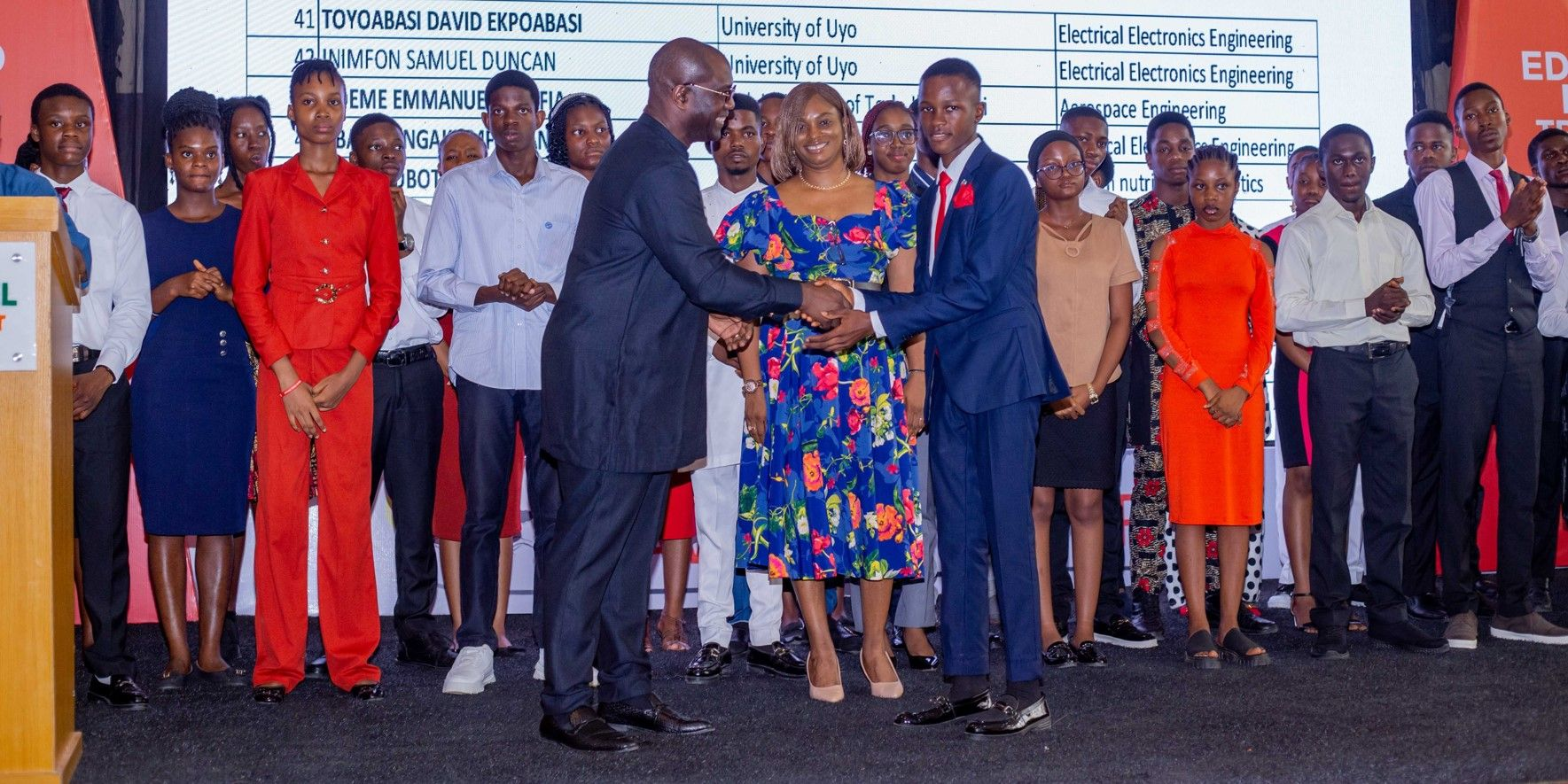
Learn more about our efforts to promote socio-economic prosperity
1. Source: World Bank Gapminder, 2022.
2. Sources: IEA.
3. Source: Savannah calculations from IEA, IMF and Nigerien authorities sources.
4. Based on internal calculations.
(e) Total contributions to Nigeria and Niger defined as payments to governments, employee salaries and payments to local suppliers and contractors. Where total contributions refer to the period 2014–2022 they include contributions to Nigeria during the period pre-acquisition of the Nigerian assets by Savannah.
